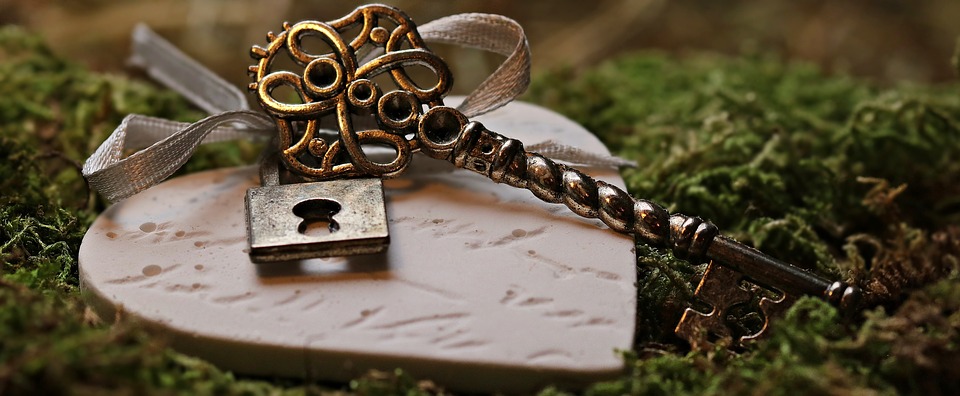"I've decided to be happy because it is good for my health." -- Voltaire

It was the Summer of 1976. My best friend, Laura, and I crafted the perfect blanket fort on the deck. The five or more lawn chairs turned on their side, clothespins securely held the blankets in place, complete with a broom up the middle to give us needed head space.
We raided my mom’s dresser drawers for grandma’s old nightgowns and dressed up in finery of sheer pale blue and pink polyester-silk, believing we were beautiful princesses. Dolls, stuffed animals, cradles and a little tea set were brought out into the light during fort adventures. Under the canopy, melting grape popsicles dripping down our fingers in the hot summer heat and drinking “tea” with our pinkies extended, except the tea wasn’t apple juice or water. It was pickle juice. We reveled in the priceless hours under the fort and we were genuinely happy.
Creating Heart Happiness
Flash forward 40 years, as an adult, trying to re-create magical-blanket-fort-pickle-juice-tea-party-happiness. Every day. Learning to create happiness is a personal choice and responsibility, as nobody else can generate the happiness we desire. Sure, we can feel happy and filled up around certain individuals or particular experiences bring happiness, however, happiness is created by us, for us. It’s our influence, how we direct ourselves and choices, which allows greater latitude for cultivating happiness.
We know the feeling of happiness. The warmth of feeling happy and joyful as it permeates through our cells and our hearts, when we’ve made someone else’s day, accomplished a major goal, played with our pet, created something, or spent quality time with friends and family who enrich our lives. The heart has its own electromagnetic field, and is 100 times greater than the strength of the brain energy field. Our heart energy can be detected up to three feet away, and is felt by others, and especially when we’re truly happy.
* Self-care is essential. Small changes lead to lasting effects. Begin with something tangible and easy to bite off to incorporate into your day. Spending even five minutes of quiet meditation and/or journaling every morning will bring about lasting changes of happiness. Giving gratitude for the people in our life and things we already have creates happiness, and ushers in more gifts. Self-care is learning to listen to our body and what it requires. Sometimes taking an Epsom salt bath with essential oils is the perfect remedy, while other times, taking a car ride to take in the fall foliage does the trick. Listening to preferred music or frequencies, such as Binaural Beats or Solfeggio frequencies, will facilitate changing the neural structure in the brain, creating more happy hormones.

* Maintain hobbies, creative outlets and play. We have the tendency to become wrapped up in spending our whole day living in a mental fog, acting on autopilot. When we carve out time to engage in creative outlets, it frees up the brain. We become increasingly alert-oriented, improve our confidence and decision-making skills, mental clarity, decrease anxiety and cultivate happiness. Creative outlets and hobbies vary for each individual, and anything goes. If you’re searching for something to fill a void, spend some time in dreamy, childhood reflection. What were the things and activities that brought us happiness and contentment. Many times, those lost or forgotten skills are door openers for favorite occupations. When we were kids, one of our main occupations was to play. As adults, the importance of integrating play into our lives is imperative for alleviating stress and adding to our happiness cup.
* Be of service. When we give to others, we also receive happiness through the heart. If we enjoy volunteering or heading up a committee within the community, we’re acting in service. According to a study in BMC Public Health, the conclusion illustrates volunteer work significantly increases mental and physical well-being. Mental health, physical health, life satisfaction and social well-being were positively correlated; negatively correlated with depression. Likewise, service onto others is how we present and show up in our career. We’re in a role for a particular reason; embracing our gifts and what we offer colleagues or clients. Learn to appreciate the give and receipt of the service, knowing benefit and worth is being traded for value and appreciation.

* Dump and befriend trauma. This area may span a range for individuals, depending on how extensive the trauma is and family system dynamics. While I do know clearing trauma takes diligence, intention, time and self-love, it’s worth it beyond measure. How we go about doing this heavy work is a personal choice. Trauma changes our brains and many individuals have extreme difficulty finding happiness or feeling worthy enough to be happy, often asking themselves “Do I even deserve to be happy?” Yes, we do! The more layers of old patterns and experiences we clear, the lighter and happier we become. Our inner dialogue begins to shift from Nelly Negative to Pollyanna Positive. We all know the body is continuous responding to the inner dialogue, whether it’s conscious or unconscious, so finding ways to retrain the neural pathways for positivity is important. Additionally, as we continue to rid the brain-body of trauma, we end up cleaning up our social ties, with less desire to be around certain individuals and making new, healthy habits.
* Body movement. Moving our body has multiple benefits. Not only does it increase serotonin and endorphin levels in the brain, which creates happiness, it moves stagnant energy through, which also means moving negative experiences and stress out of the body. It’s a double win; now we’re happier because of the brain chemical boost, and happier as we’re ridding the brain-body of stress. Body movement is any traditional exercise (run, walk, ski, bike, swim), yoga, sex, Tai Chi, gardening, painting, or even hula hooping. Appreciating the gift of being able to move is another way to give gratitude for our body, while treating it with respect and kindness.
* “This is your dance space, this is mine.” Remember that line in Dirty Dancing? Having clear boundaries and personal space enhances our happiness. We know the feeling when we’ve said “yes” to something we really didn’t want to do, or allowed someone to walk all over us. It doesn’t feel good and we know it. When we take care to understand ourselves we can develop new boundaries which are aligned with our current mind-body-spirit self. We then show another person where the line in the sand is drawn. Personal space is significant for allowing the quiet space to rejuvenate and settle into your thoughts and body, as well as time away from other people. Too much noise dulls the senses and is a distraction from introspection.
Maintain Lasting Happiness
Happiness falls within a range; we are the creators of our lives and our happiness. When we’re aligned and happy within, we continue to maintain a uniformed level of happiness, even when big stressors knock us off our feet or our world seems to be crashing down around us. We demonstrate increased resiliency and grit, armed with happiness and gratitude which propels through the challenging situations.
What appealed to us as children and adolescents, most likely doesn’t captivate us as adults. We continue to heal, adapt, change and explore, which calibrates us internally in mind-body-spirt and fills our happiness cup. I suppose I could make a blanket fort in the living room, sucking on a popsicle or sipping pickle juice like my six-year old self, but I have no need to. My life is sweet as it is.

Zhang, Z., Yeung, J., and Kim, T. September 22, 2017. “Volunteering and Health Benefits in General Adults: Cumulative effects and Forms”. BMC Public Health, 2017. 17: 736.
This was originally posted on Thrive Global September 30, 2020. To read article, click on the link here: Read here
© 2020 by Jodi Lawyer, M.A., OTR/L. Helix Healing Path. All rights reserved. You may quote, copy, translate and link to this article in its entirety, on free, non-donation based websites only, as long as you include the author name and a working link back to this website. All other uses are strictly prohibited.

